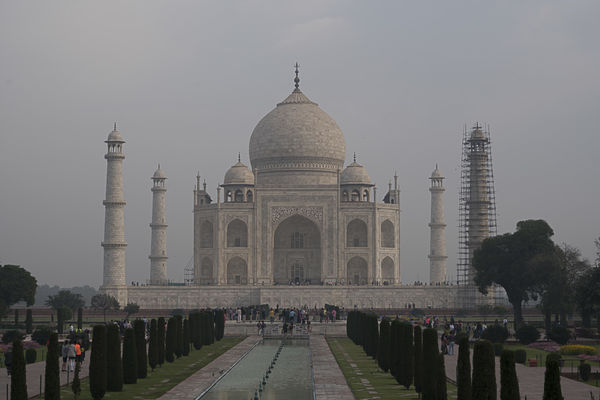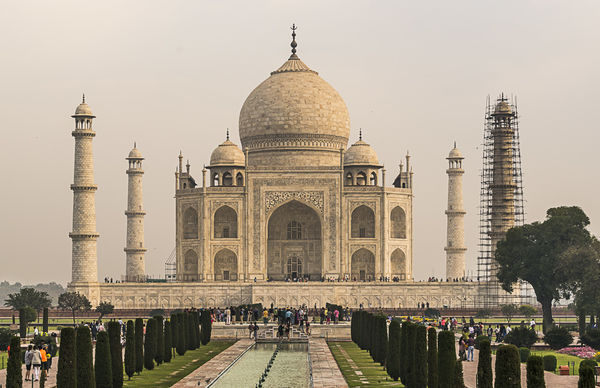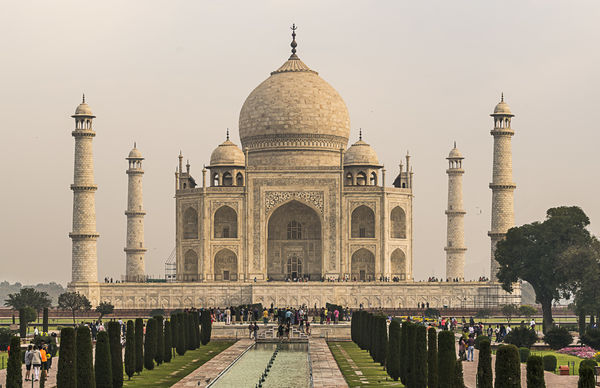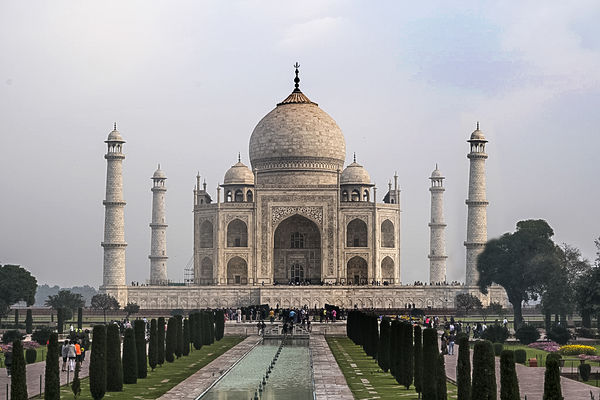Photoshop and Lightroom
Mar 24, 2017 02:46:47 #
BrentHarder wrote:
OK here's a question for everyone: Is there anyone out there that uses "BRIDGE" along with Photoshop? Does everyone think that LR is superior to Bridge? If so, what are those advantages of LR over Bridge? Is there anyone that has used BOTH LR and Bridge that would know? Thanks in advance.
In February 2014 I was at one of those Photoshop learning sites that costs money and caught a free webinar on using Bridge. It sold me on Bridge but I decided against paid learning sites because there is so much free stuff available. At the time I was a huge Lightshop fan and user. I set out to learn everything about Bridge. Since that day if I had to do something, I forced myself to do Bridge and Photoshop, and I have not used Lightroom even once in the ensuing three years. After being an expert at Lightroom and now being an expert at Bridge and Photoshop, Bridge has Lightroom's cataloging/keywording/rating/search/etc. functions beat by a long shot. Bridge and Photoshop are open all the time on my computer since I use them a couple of hundred times each day.
Mar 24, 2017 06:20:37 #
mikegreenwald
Loc: Illinois
BrentHarder wrote:
OK here's a question for everyone: Is there anyone out there that uses "BRIDGE" along with Photoshop? Does everyone think that LR is superior to Bridge? If so, what are those advantages of LR over Bridge? Is there anyone that has used BOTH LR and Bridge that would know? Thanks in advance.
I used Bridge for years, and have now switched to LR. LR is superior because 1: It is non destructive, and 2: reverting to the original RAW files is very quick and easy. I find navigation around Bridge to be easier because I used my own system, which is far simpler and more logical than the LR system, and I NEVER lose a file nor have difficulty finding it there. LR is counter-intuitive, and until you study and learn it, very difficult. However the entire process - filing and processing of 90+ % of photos is done in one place, and it is worth the effort to learn how. Bridge requires the use of PS to process the photos. PS it is much more capable than LR for creative purposes, it too has a steep learning curve and for most photos it isn't needed.
Mar 24, 2017 07:18:52 #
mikegreenwald wrote:
I used Bridge for years, and have now switched to ... (show quote)
This is EXACTLY why I use Lightroom to do my basic process and then (if I need to) export to Photoshop for additional processing or manipulation. Lightroom is NON-DESTRUCTIVE and Photoshop is a pixel editor. Each has its best uses and worst adaptations. I use Lightroom to get my photos 99.9% ready then export to Photoshop to fine tune. I use it to remove posts, signs, people and other items that may add clutter to a shot. I also use Photoshop for anything that is more difficult or impossible in Lightroom. Yes, Photoshop is more powerful, but if you do your job as a photographer correctly, then you don't need to run everything through Photoshop. Why make things more difficult or complicated? I just processed 600 photos for a a beach wedding and dinner. All but 2 of the images were completely processed in Lightroom. The other 2 were processed in Lightroom then exported to Photoshop for final touches before being sent to the processor for printing.
Mar 24, 2017 08:59:03 #
TheDman
Loc: USA
mikegreenwald wrote:
I used Bridge for years, and have now switched to ... (show quote)
No. Bridge uses ACR for raw edits, they are non-destructive, and reverting back to the original is easy.
Mar 24, 2017 10:59:06 #
Those who say that Photoshop is a destructive pixel editor simply haven't learned the power of the History panel.
Mar 24, 2017 11:26:43 #
Mike1017 wrote:
I use bridge and then PS works good for me LR to me is a bit clunky but it has its good points, its a matter of choice. I don't like LR handling my files, all my files are in external hard drives and when I need to get to them there easy access and not hanging around in LR every time you open LR. I guess what I am trying to say don't much care for having a library handling my files. Mike
You will love LR if you had to "select" from hundreds of shots.
Mar 24, 2017 11:30:07 #
Great question,
For a guy like yourself who is versatile in all of the software programs that you mentioned, you are absolutely right.
As for me, I started using Photoshop back when it was all that there was. I used to spend tons of money upgrading my computers
as each bigger and badder equipment came out. And each time I did that, I also had to buy the newest software that was compatible.
One day, I realized that each time I did that, I had never really finished learning the full potential of either the previous hardware or
the previous software. I discovered that buying new, new, new all of the time didn't make me a better photographer or a better graphics person.
I had to ask myself what I would rather be doing. Would I rather be spending hundreds of hours at my desk learning new software and fixing my images?
Or would I rather spend more time in the field doing what I really love? And that would be taking pictures. So now my goal, as a former pro-photographer, and now a retired
amateur photographer, is to learn as much as I can about how to use my camera to capture my images correctly in the field so that I don't need to correct them
after I get home. It has been a journey for sure!!! But in the end, If I need to correct an image? Why? What am I doing wrong with my settings and menus.
For me, I learned more about composition and capturing light the way I imagined it.
Anyway, these are my thoughts. I hope they will be of some use to someone.
Dave
For a guy like yourself who is versatile in all of the software programs that you mentioned, you are absolutely right.
As for me, I started using Photoshop back when it was all that there was. I used to spend tons of money upgrading my computers
as each bigger and badder equipment came out. And each time I did that, I also had to buy the newest software that was compatible.
One day, I realized that each time I did that, I had never really finished learning the full potential of either the previous hardware or
the previous software. I discovered that buying new, new, new all of the time didn't make me a better photographer or a better graphics person.
I had to ask myself what I would rather be doing. Would I rather be spending hundreds of hours at my desk learning new software and fixing my images?
Or would I rather spend more time in the field doing what I really love? And that would be taking pictures. So now my goal, as a former pro-photographer, and now a retired
amateur photographer, is to learn as much as I can about how to use my camera to capture my images correctly in the field so that I don't need to correct them
after I get home. It has been a journey for sure!!! But in the end, If I need to correct an image? Why? What am I doing wrong with my settings and menus.
For me, I learned more about composition and capturing light the way I imagined it.
Anyway, these are my thoughts. I hope they will be of some use to someone.
Dave
Mar 24, 2017 11:55:45 #
As an amateur I, so far, have not found a need for LRCC. I have long experience with PS and use it often. My work flow is: download RAW files from card to my Download folder (Mac), change all the file names to yyyymmdd-xxxx which is easy to do on a Mac. I save the unique digits that the camera gave each file. I change the folder they are in to yyyy-mm-dd. Then I open that folder in Bridge where I can put in metadata - name, address, copyright, etc, are all in a metadata template. Discards are sent to Trash. Saves are then opened in ACR and puttered with. Anything I wish to show others then are sent to PSCC where they can be sized and other things removed from the image.
Mar 24, 2017 16:29:59 #
mikegreenwald
Loc: Illinois
russelray wrote:
Those who say that Photoshop is a destructive pixel editor simply haven't learned the power of the History panel.
Largely but not entirely correct; once a photo is flattened, you cannot revert fully. However, the easy workaround is to use duplicates before PP.
Mar 24, 2017 16:30:45 #
Martino wrote:
I'm not trying to start an argument here about the... (show quote)
In the original post is the question, "........why do so many people go directly to Photoshop for post production? Surely Lightroom, Luminar and the others are more appropriate for post production? Photoshop seems overly complicated and more suited to graphic design."
No doubt Photoshop is complicated. Many (millions?) get Lightroom and Photoshop as a bundle. The question becomes, "What is in Photoshop that is special and useful for Lightroom users?"
I've been getting promotional emails from MattK.com promoting a new course to answer that question. The course is promised to develop the skills to take advantage of the parts in Photoshop useful to photographers.
The course was released yesterday and the price (not really cheap) is 50% off for a week.
I started a topic about the course here: http://www.uglyhedgehog.com/tpr?p=7566935&t=449901
Mar 24, 2017 16:43:03 #
russelray wrote:
In February 2014 I was at one of those Photoshop l... (show quote)
Thanks so much russelray for your input on this question about LR VS Bridge and how you are satisfied with Bridge and PS. I have been doing the same thing with Bridge and PS and have always had excellent results and needed your testimonial to stay with Bridge and not switch over to LR like the majority of photographers here have done. Thanks again russelray.
Mar 24, 2017 17:01:59 #
I started with PE version 1 and have stuck to it since. I have close to 8000 photos filed and have just started using Raw. It works fine for me both as an organizer and editing tool. With the volume I work with just do not see the need for Lightroom.
Mar 24, 2017 17:23:59 #
Perhaps this helps present the different uses of the different tools:
Here's the Taj Mahal, shot on a hazy smoggy day with scaffolding over the right tower.
Here's the obvious cleanup in Lightroom - exposure, color balance, lens distortion, perspective, tilt, framing, horizontal horizon, etc.
And here's the Taj edited in Photoshop - with the left tower cloned onto the right tower to reconstruct the unblemished Taj. It's not perfect - still some work to do, but a whole lot better a souvenir.
Here's the Taj Mahal, shot on a hazy smoggy day with scaffolding over the right tower.
Here's the obvious cleanup in Lightroom - exposure, color balance, lens distortion, perspective, tilt, framing, horizontal horizon, etc.
And here's the Taj edited in Photoshop - with the left tower cloned onto the right tower to reconstruct the unblemished Taj. It's not perfect - still some work to do, but a whole lot better a souvenir.
Mar 24, 2017 19:33:48 #
Neilhunt wrote:
Perhaps this helps present the different uses of t... (show quote)
Thanks Neilhunt for your three photos of the Taj Mahal. I hope you don't mind that I took the first one and put it into Bridge, worked it over, then into PS and worked it over and am now presenting it to you. Please let me know if it looks not so good, ok, good or even great!
Mar 24, 2017 21:55:18 #
mikegreenwald wrote:
Largely but not entirely correct; once a photo is flattened, you cannot revert fully. However, the easy workaround is to use duplicates before PP.
I do it all the time.
If you want to reply, then register here. Registration is free and your account is created instantly, so you can post right away.










